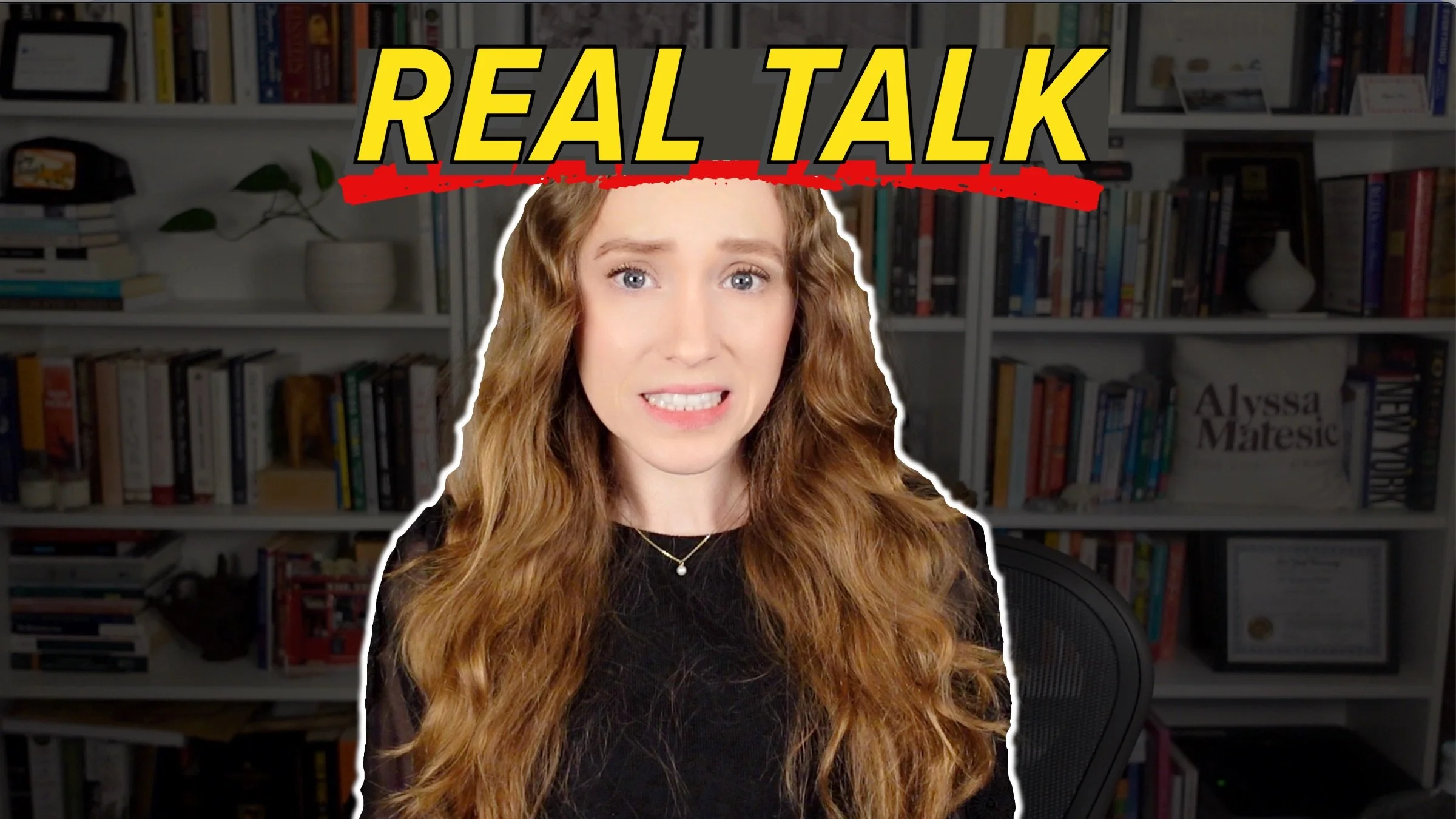How Many Literary Agents Should You Query?
HIT PLAY OR READ THE POST BELOW:
A common question I see within the writing community is: How many literary agents should I query, if the goal is to get traditionally published? This is a valid question to ask, as we all know that time is money. As an aspiring author, you want to know how many tries to give the query process before reconsidering your publishing options.
Some authors I’ve worked with have come to me saying they’re disappointed because all the literary agents they reached out to have either rejected them or haven’t responded. While this is an unfortunately common situation to be in, my response is always, “How many agents have you queried?”
This is because the querying process is ultimately a numbers game. I know how frustrating it can be to hear that, but as someone who has worked on the agent’s side of the querying process, it really is just a numbers game at the end of the day.
To help you optimize your querying process so that you can get a positive response, I’m going to cover how many agents there are in the industry, my tips for determining how many of them to query, and what to do if you feel like you’ve run out of literary agents to query. Spoiler alert: you have not run out of agents to query yet, I promise!
How Many Agents Are There?
First, to contextualize the question of “how many literary agents should I query,” we have to talk about how many active agents there actually are in the industry.
The place I always cite for this information is a website called QueryTracker. Especially in the US, QueryTracker is the most widely used literary agent database by both agents and authors who are querying, so I recommend checking it out if you haven't already. Currently QueryTracker has more than 1,700 listings for literary agents, which includes mostly US-based agents but also those based in the UK and elsewhere.
Of course, that does not mean that your target querying number should be anywhere near 1,700 agents. Not only is that an unrealistic number, but also you shouldn't be querying every agent that crosses your path. When choosing which agents you want to query, you should be very picky and deliberate.
First, you need to make sure the agent is actively open to submissions from authors.
More and more agents these days are doing open periods, which are moments where their client work has subsided and thus they can give more attention to queries. On the flipside, there are also closed periods, where agents directly state that they are not accepting new queries.
You always want to check an agent's availability through their website as well as QueryTracker, which has a way to filter for agents who are open to queries. Additionally, some agents always remain open to queries, so just make sure you do your research.
Second, you only want to query literary agents who represent your genre and specifically list your genre as something they are interested in. If you send your query to an agent who does not represent your genre, it will likely result in an instant rejection.
Third—and this is really important—note that you can typically only query one literary agent per literary agency. Agencies come in a lot of different shapes and sizes, with some hosting dozens of agents and others only having a single agent. So make sure you pick the agent from the agency who is the best match for your project.
How Many Agents Should You Query?
Now that you have a sense of how many agents there are and how to filter them down, it’s time to talk numbers. Let me start by saying there is no right answer for “how many agents should I query,” and if anyone gives you a specific number, they are just misinformed.
The hard truth is no matter how many queries you send out, no matter how many agents you reach out to, there is still no guarantee of getting representation. Some authors will query only one agent and that first agent will offer them representation and it will just work out beautifully. Others will query over a hundred agents and never get an offer of representation. That is just how the publishing industry works; it’s all about timing, research, and a little luck.
With that random factor in mind, there is no hard data on how many agents on average you should query to get an offer of representation. Most documented resources are from authors who are open to sharing how many agents they queried.
That, combined with my own experience in the industry, shows that authors usually query a few dozen literary agents before getting an offer of representation. I would consider an average range to be anywhere between 30 to 70 queries, which I know can sound like a lot. Especially if you are personalizing each query letter to an agent, these queries will take time and effort.
If you have reached the point of querying 100 agents and you have received no positive responses, meaning no one has requested to review the entire manuscript, I would take a step back and reconsider either your query letter approach, the manuscript itself, or ideally both. There is something that needs to be ironed out.
If you are in the position of querying a few dozen literary agents and you have received some requests for the full manuscript, I want you to know that that is extremely encouraging. You should definitely keep going, as it’s a sign that your sample pages and pitch are intriguing agents. If you still haven’t gotten an offer for representation, it could just be that the agents who requested the full manuscript just didn't connect with the story as it progressed.
Keep in mind that it is rare to receive a request for a full or partial manuscript. When I was working at a literary agency and primarily responsible for reviewing queries from authors and requesting manuscripts that sounded promising, over the course of two years I only requested a handful of manuscripts out of hundreds and hundreds of queries. So if you are getting those requests, it is very promising.
If you are getting a lot of requests for the manuscript and they are all turning into rejections, it might be that you should focus more effort on the manuscript to make sure it's really delivering on the promise you set in the sample pages and query letter. However, keep your head up! It still means your story has high potential.
What If You’ve Run Out of Agents to Query?
What should you do if you feel like you're in the situation where you have run out of agents to query? You've done your research, you've sent out a few dozen queries, and now you are unsure where to go from here.
One option is to query agents outside of the country you’re based in. For example, if you are based in the US and you have been focusing on US agents, you can branch out and start querying UK and or Canadian agents. This will be especially helpful if you personally have a connection to that country and or your story has appeal in that market. I recently had a US-based author, whose story actually also took place in the US, sign with a UK agent just because they meshed really well professionally.
Keep in mind that the UK, Canadian, and US publishing industries are extremely interconnected, so you will still likely be able to get a good book deal no matter which of those locations your agent is based in. On the flip side, if you are based in the UK or Canada, then definitely consider US agents because they can also represent you. Also, even if you aren’t based in any of these three countries, you can still definitely query agents from them.
Another option to broaden your agent list is to query junior level agents, as they are often looking to build up their client list. Junior level agents often have fewer submissions from aspiring authors and therefore can give your query and manuscript more time and attention.
Lastly, keep your eyes on #MSWL, which stands for “manuscript wishlist,” on Twitter. Many agents are active on Twitter and when they are looking for a specific type of story, they will describe it and tag it with #MSWL to let people know that they are open to receiving queries that fall in line with that description.
Agents also usually post on Twitter when they are reopening their query inbox, so that's a good place to search for that information as well. It may be the case that you find someone whose manuscript wishlist perfectly aligns with your project, so I recommend checking Twitter once a month or every six months, whenever you're rethinking your querying strategy.
I hope these tips help you feel more confident and optimistic about your querying approach! I know how hard it can be and that's why I want to keep bringing you resources that help you stay encouraged and understand how the industry works.
Thanks so much for reading and happy querying!





